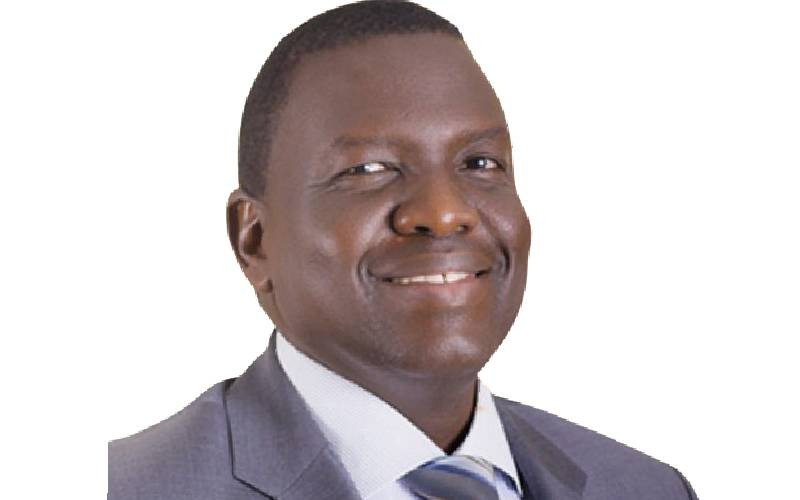By KURIAN MUSA
NAIROBI, KENYA: All analogue television signals will be switched off at today midnight following a Government directive on Tuesday.
The move will cut off a majority of Kenya’s television viewers who are loyal watchers of KTN, Citizen TV and NTV.
It follows a High Court ruling on Monday by Justice David Majanja that dismissed a petition by Kenya’s three main media houses, the Standard Group, Royal Media Services and Nation Media Groupseeking to delay the switch-off. The three own KTN, Citizen and NTV respectively.
On Tuesday, the three media houses released a statement on Thursday's switch-off, and why they will go off-air once it is implemented.
“When we went to court to seek postponement of digital migration, the date for the same was rescheduled from December 13 to December 23, 2013 when judgement was delivered,” they said in the statement.
They went on: “Our case was dismissed, and on dismissal, the orders extending the switch-off expired. The CCK has made it clear that broadcasting without a licence is in breach of the law and the CEO of any institution doing so is liable to jail and/or a fine of Sh20 million. As law abiding institutions, and on the advice of our lawyers, we switched-off (transmission) pending an appeal of the judgement.
“The Principal Secretary for Information, has announced that, administratively, the new switch-off date is midnight, December 26. For this reason we are coming back on air. Regrettably, this will be only until midnight, December 26 when we switch off again as directed by the Principal Secretary. Our appeal is set down for hearing on Friday, December 27,” said the three media houses in their statement.
Limited choice
They continued: “If the Court allows us to, we will resume broadcasting. Whereas we are not against digital migration, and in fact support it, one of our concerns about the migration date is that more than 90 per cent of our viewers do not have universal set top boxes to receive the free to air digital signal.
“In fact according to the Cabinet Secretary for Information Fred Matiang’I, in a letter dated November 6, 2013 to the chair of MOA (Media Owners Association) Mr Kiprono Kittony, there are only 26,538 universal receivers in the country. Nairobi alone and its environs has an estimated two million television sets.
“The other set top boxes (STBs) are pay TV STBs, which attract a monthly subscription and should not be confused with the universal FTA digital receivers. Resumption of normal services will now await the verdict of the Court of Appeal.”
Broadcasting in Kenya started in 1928 as monopoly run by the Government. The broadcasts targeted white settlers who monitored news from their original homes and other parts of the world.
The ruling by Justice David Majanja means many Kenyan viewers will have a limited choice on what to watch as KTN, Citizen and NTV command over 86 per cent of TV viewership.
Media houses are aggrieved that after spending billions of shillings annually developing television programmes and millions more to secure intellectual property rights over the same, they will now have to rely on a third party to air the same.
Stay informed. Subscribe to our newsletter
Billions more have been spent by the three media houses on improving their transmission infrastructure.
The businesses stand to suffer irreparable damage and potential shutdown loss of jobs as well as loss of government revenue in the form of tax.
At least 90 per cent of the 170,000 set top boxes allegedly distributed by the Signet Kenya Limited and China-owned Star Times are for pay television services.
The Information Ministry itself released a statement that there are 26,000 ‘free to air’ set top boxes in the country.
‘Free to air’ means that one can buy set top boxes and watch local programmes without having to pay for the same.
Most decoders in the market are not cheap. A decoder for pay television firm Zuku costs Sh5,600 at the initial installation excluding the monthly subscriptions.
Decoders for DStv, another pay television firm, range from as low as Sh5,000 to Sh45,000.
Star Times decoders cost start from Sh3,500.
Free to air decoders cost about Sh2,500, but are in low supply, according to the Government’s own statements.
Monthly subscriptions range from as low as Sh500 for the cheapest digital service provider and as much as Sh8,000 in order to view premium digital programmes.
“If you replaced your TV and sent your old series to the village for your mother-in-law probably to use, it is unfortunate,” said Philip Odin do, a business telecommunications technician in Westlands, Nairobi.
Senior Counsel Paul Muite likened the switch-off, to a “death sentence”. It is in Nairobi where about 50 per cent of the advertising community is based, and the switch-off is intended to kick off from the capital city.
According to Databel International director George Matara, “Our survey shows that most people in Kisii region and parts of Nyanza, don’t own the digital boxes and majority can’t afford them. This is the measure most economists prefer when looking at per-capita welfare and when comparing living conditions or use of resources across country.”
 The Standard Group Plc is a
multi-media organization with investments in media platforms spanning newspaper
print operations, television, radio broadcasting, digital and online services. The
Standard Group is recognized as a leading multi-media house in Kenya with a key
influence in matters of national and international interest.
The Standard Group Plc is a
multi-media organization with investments in media platforms spanning newspaper
print operations, television, radio broadcasting, digital and online services. The
Standard Group is recognized as a leading multi-media house in Kenya with a key
influence in matters of national and international interest.
 The Standard Group Plc is a
multi-media organization with investments in media platforms spanning newspaper
print operations, television, radio broadcasting, digital and online services. The
Standard Group is recognized as a leading multi-media house in Kenya with a key
influence in matters of national and international interest.
The Standard Group Plc is a
multi-media organization with investments in media platforms spanning newspaper
print operations, television, radio broadcasting, digital and online services. The
Standard Group is recognized as a leading multi-media house in Kenya with a key
influence in matters of national and international interest.








